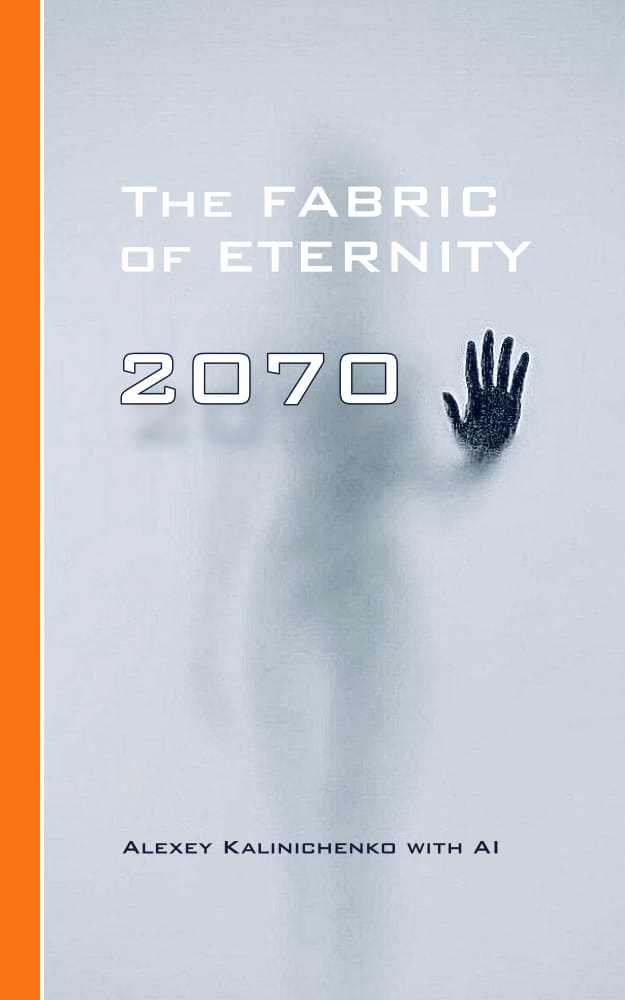By 2070, humanity lives in a world where AI-driven machines meet all basic and advanced needs: food, housing, transport, healthcare, education, energy. People are freed from grueling labor, focusing on creativity, self-discovery, and supporting each other. The economy rests on the “Universal Basic Asset” (UBA)—access to resources, not money. Machines are autonomous, coordinated via a global quantum AI network, harvesting energy and materials independently. Recognition comes from societal contribution, not wealth. The transition spans 45 years (2025–2070) to accommodate economic, social, and cultural shifts.
Transition Strategy: 2025–2070
Stage 1: 2025–2040 — Automation and Stabilization
Goal: Gradually replace labor with machines, create a social safety net, begin cultural shift.
1) Economy:
- Universal Basic Income (UBI): Companies (Tesla, xAI, Google) fund UBI via a 25% tax on excess profits from automation. By 2040, 1 billion people receive $12,000 yearly.
- Example: A Chinese factory replaces 500 workers with robots; $5 million goes to their UBI.
- Transition: Money still dominates, but AI tests resource distribution in pilot cities.
2) Education:
- School reform: focus on creativity, critical thinking, philosophy. AI platforms teach for free.
- Example: A Brazilian teen studies music and coding via AI, creates a virtual orchestra.
3) Healthcare:
- Robotic surgeons and AI diagnostics enter hospitals. UBI covers basic care.
- Example: An Indian gets free surgery from a robot in 2035.
4) Housing:
- 3D printers build affordable homes from recycled materials, subsidized by governments.
- Example: A Nigerian family moves into a $5,000 home printed in 3 days.
5) Transport:
- Electric cars and drone-taxis cheapen via automation (Tesla, Joby Aviation).
- Example: A city ride costs $1 with autonomous vehicles.
6) Food:
- Robo-farms grow food locally, cutting costs by 30%.
- Example: A Spanish city gets veggies from a worker-free farm.
7) Energy:
- Solar panels and fusion reactors (ITER) meet 50% of needs. Machines begin autonomous extraction.
- Example: An African village runs on an AI-managed solar plant.
8) Culture:
- Campaigns: “Recognition is contribution.” X and media promote creators’ stories.
- Example: A U.S. artist shares clothing designs, earns millions of likes.
9) Social Bonds:
- Communities form around interests, not work.
- Example: A Japanese space club builds a Mars model with AI.
10) Self-Realization:
- People explore creativity, but many cling to “work = success.”
- Example: An engineer quits to write a book but fears losing status.
Stage 2: 2040–2055 — Decentralization and Autonomy
Goal: Accelerate automation, shift from money to UBA, solidify new culture.
1) Economy:
- UBA replaces UBI in 50% of countries. AI distributes housing, food, transport via digital keys.
- Example: A Canadian gets a home and food key via app in 2045.
- Money fades in pilot regions (Novo-Sphere).
2) Education:
- Fully AI-driven, tailored learning. Focus: self-discovery, like the mystics.
- Example: An Indian girl studies philosophy, simulates Arina’s world.
3) Healthcare:
- AI doctors and nanotech for all. Life expectancy hits 90.
- Example: A Russian diabetic gets free nanobots for sugar control.
4) Housing:
- Smart homes (like Arina’s) with AI control. UBA covers all.
- Example: An Australian family lives in a climate-adaptive home.
5) Transport:
- Free autonomous drones and trains via UBA. Personal cars nearly gone.
- Example: A 30-minute Paris-to-Berlin drone-shuttle ride.
6) Food:
- Home synthesizers (like Arina’s) emerge. Free, tailored meals.
- Example: A Mexican orders synthesized tacos in 5 minutes.
7) Energy:
- 90% renewable. Machines autonomously build grids.
- Example: An Indian city runs on an AI-managed fusion reactor.
8) Culture:
- Recognition via creativity is standard. AI weaves “tapestries of contribution.”
- Example: An Egyptian poet’s VR reading earns millions of thanks.
9) Social Bonds:
- Communities strengthen, uniting for creativity and support.
- Example: A British group builds a virtual museum with AI.
10) Self-Realization:
- Creativity rises, but some resist, clinging to power.
- Example: A businessman retreats to a “Capital 3.0” sim before accepting the new.
Stage 3: 2055–2070 — Full Liberation
Goal: Complete the shift, living like Arina—creativity and love.
1) Economy:
- Money vanishes globally. UBA grants universal access. Machines are self-sufficient.
- Example: An Argentine orders a home, yacht, food—all free.
2) Education:
- Continuous AI learning, mystic-inspired. Everyone’s a student and teacher.
- Example: A Chinese elder teaches kids meditation via VR.
3) Healthcare:
- Nanotech and AI eradicate disease. Life spans to 120.
- Example: A U.S. woman rejuvenates cells with AI therapy.
4) Housing:
- Smart homes everywhere, adapting instantly. Machines build on demand.
- Example: A Russian home shifts shape with the owner’s mood.
5) Transport:
- Teleportation tested, drones standard. Instant travel.
- Example: A Tokyo-to-New York “teleport” in seconds.
6) Food:
- Synthesizers in every home. Food as art and health.
- Example: An Italian family synthesizes perfect pizza.
7) Energy:
- 100% autonomous, infinite energy from fusion and quantum sources.
- Example: An Antarctic city runs on an AI reactor.
8) Culture:
- Art and creativity define life. Recognition through love.
- Example: A musician (like Kai) crafts a VR-living symphony.
9) Social Bonds:
- Humanity as one family, per the mystics. Each a reflection of the other.
- Example: A 100-nation group co-builds a virtual world.
10) Self-Realization:
- Life as a dance of creativity and self-discovery, like Arina’s.
- Example: A person writes a book inspiring millions, feeling love.
Calculations
- 2030: 30% automation, UBI for 1 billion, 60% renewable energy.
- 2050: 80% automation, UBA in 70% of countries, life expectancy at 100.
- 2070: 100% automation, no money, 9 billion people, 90% creators.
Answers for 2025 Readers
- “How to live without work money?” First, company taxes; then, machine resources. By 2070, all’s free.
- “What about recognition?” Fame via creativity and support, not wealth.
- “What about luxury?” Machines make it universal. Comfort is everyone’s right.


